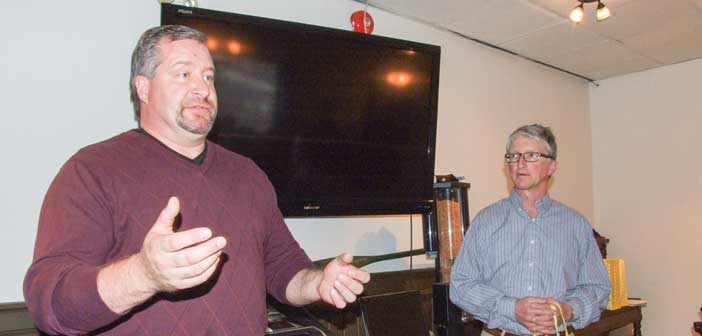The people of Canada can accept some cautious, and tentative, congratulations in their insistence that the federal Conservatives back down on at least some provisions of its proposed Fair Elections Act.
The people have spoken and their voices have been carried to the House of Commons by all of the parties sitting in opposition to the majority Conservatives and by many media outlets, both local and national, all across Canada.
Indeed, a headline on a recent front page editorial in this newspaper on this fundamentally important topic that asked ‘What is ‘fair’ about proposed elections act?’ seem to have caught the spirit of the national momentum in this debate for the legislation, as originally proposed, will diminish, not augment, the democratic process of voting in Canada in federal elections.
The government had sworn that the legislation would pass without change, even conscripting the Senate, where the majority of members are also Conservatives, to debate the proposed bill simultaneously with the House of Commons thus attempting to expedite its passage before parliament’s summer recess.
The backing down has now begun, something that Prime Minister Harper doesn’t enjoy doing, as his Minister of State for Election Reform, Pierre Poilievre, has begun to tame the bill in order to make it more palatable for Canadians.
Algoma-Manitoulin-Kapuskasing MP Carol Hughes has stated that it is the opinion of the New Democratic Party of which she is a member that Mr. Poilievre’s proposed changes are still far from acceptable for final passage of the bill.
Much has been made of the vouching issue whereby voters showing up at the polls without identification have, in the past, been able to vote at their local polling place when another voter who does have the appropriate identification vouches that the person they know is indeed entitled to vote at that particular poll.
A great deal of the focus on this bill has centered on this particular aspect of it to the extent that Canadians can wonder if this contentious point was a throw-away one, put into the bill as a bright shiny object on which everyone can have an opinion one way or another and so minimizing the scrutiny on the many other changes the new legislation proposes.
For people who are inclined to think the worst of their neighbours, that they may be inveterate cheaters, advocating major surgery on vouching plays to that particular gallery and swings that cadre of people to the government’s side for the rest of the changes included as part of this bill, even though they remain fixed on the vouching part. In the meantime, after criticism, it’s a fairly easy portion of the bill on which to offer a compromise, which Mr. Poilievre did last week.
Was his apparent reluctance to change anything scripted?
Difficult to know, but the Fair Elections Act had, in the meantime, enjoyed nearly a month of most Canadians believing it dealt first and foremost with vouching on election day because that was mostly what they were hearing about.
Other important changes that have had much less limelight in the 15-second clips of the national media debate include changes in fundraising, in how pre-election partisan robocall details will be maintained (and for how long), the handing over to political parties of the poll-by-poll records of who voted in any given federal election, the role of the Chief Electoral Officer and his/her relationship with the Commissioner of Canada Elections (an investigative official) and a great deal more.
Canadians have clearly not been impressed. A compromise response to the ‘no vouching’ matter was, as already noted, issued by Mr. Poilievre last week and many of the national educational responsibilities of the Chief Electoral Officer have been restored as part of the government’s response to the criticism. His/her relationship with the Electoral Commissioner has also been restored, at least in part, so a ready transfer of information, as required, can hopefully continue taking place between the person who oversees elections and the individual who looks into concerns with the electoral process.
But citizens must keep up the pressure on the government, thus legitimizing arguments put forward by the opposition parties in debate to ensure that, however this legislation finally turns out, it is as transparent as possible and is not weighted in favour of any one political party.




